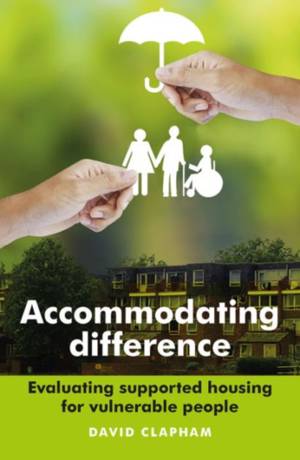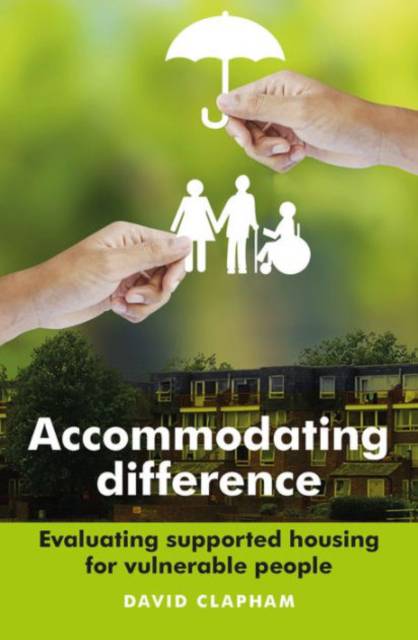
- Afhalen na 1 uur in een winkel met voorraad
- Gratis thuislevering in België vanaf € 30
- Ruim aanbod met 7 miljoen producten
- Afhalen na 1 uur in een winkel met voorraad
- Gratis thuislevering in België vanaf € 30
- Ruim aanbod met 7 miljoen producten
Zoeken
Accommodating Difference
Evaluating Supported Housing for Vulnerable People
David Clapham
Hardcover | Engels
€ 225,45
+ 450 punten
Uitvoering
Omschrijving
For vulnerable older, disabled or homeless people who need accommodation and support, many different forms of housing have developed - whether hostels, group homes, extra-care housing or retirement villages. But do these settings effectively improve the well-being of those who live in them? This important book explores the impact of different forms of policy and practice on the lives of vulnerable people, arguing for a flexible policy approach that places people in control of their own lives. It puts forward an original evaluation framework and applies this to case studies of provision in Britain and Sweden - two countries with long and differing experiences - to raise interesting and important issues for the future. The book will be a valuable resource for those working in and devising policy for supported housing as well as students on urban studies and planning courses and those studying health and social care subjects who wish to better understand the nature of supported housing.
Specificaties
Betrokkenen
- Auteur(s):
- Uitgeverij:
Inhoud
- Aantal bladzijden:
- 260
- Taal:
- Engels
Eigenschappen
- Productcode (EAN):
- 9781447306344
- Verschijningsdatum:
- 1/09/2015
- Uitvoering:
- Hardcover
- Formaat:
- Ongenaaid / garenloos gebonden
- Afmetingen:
- 157 mm x 236 mm
- Gewicht:
- 544 g

Alleen bij Standaard Boekhandel
+ 450 punten op je klantenkaart van Standaard Boekhandel
Beoordelingen
We publiceren alleen reviews die voldoen aan de voorwaarden voor reviews. Bekijk onze voorwaarden voor reviews.











